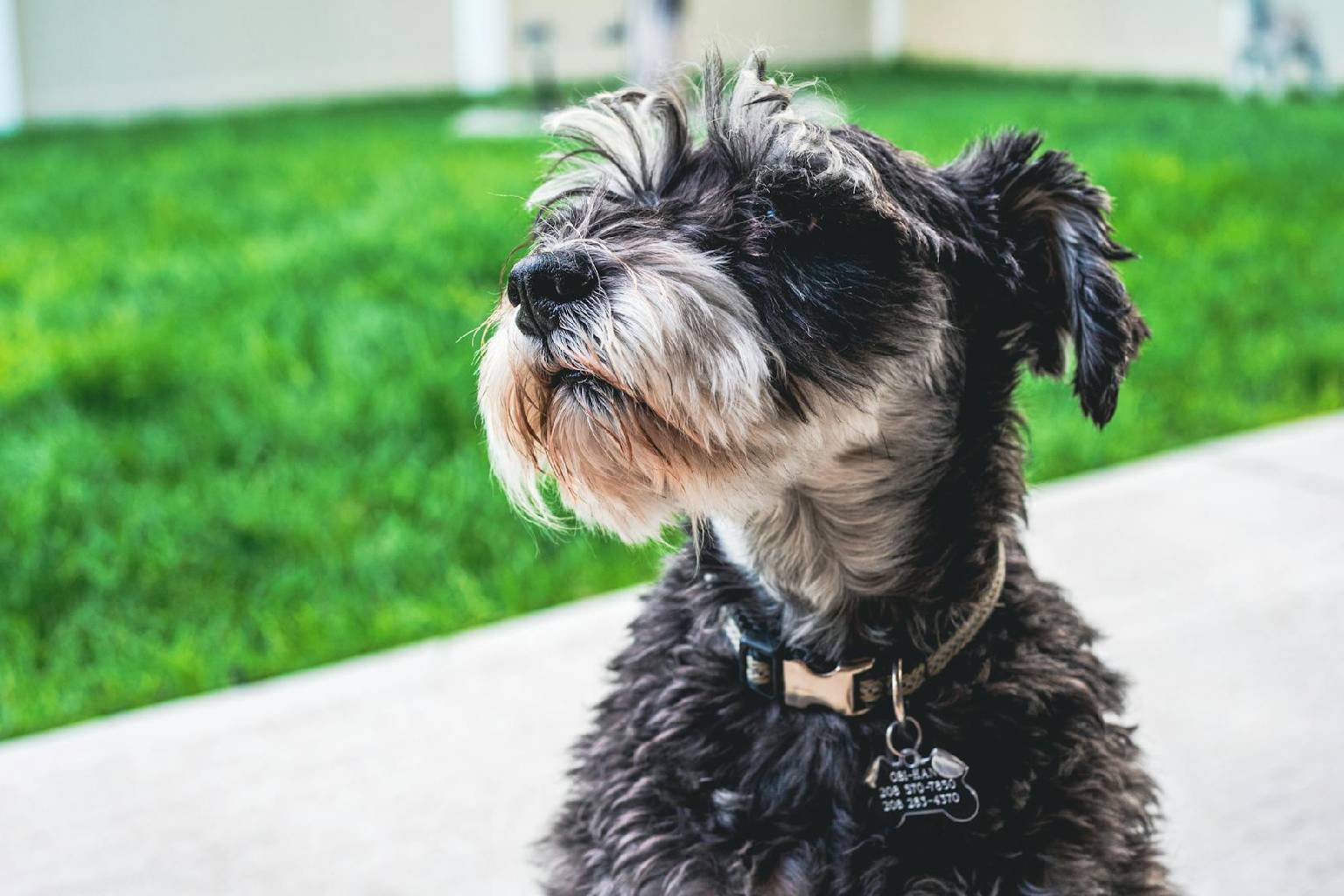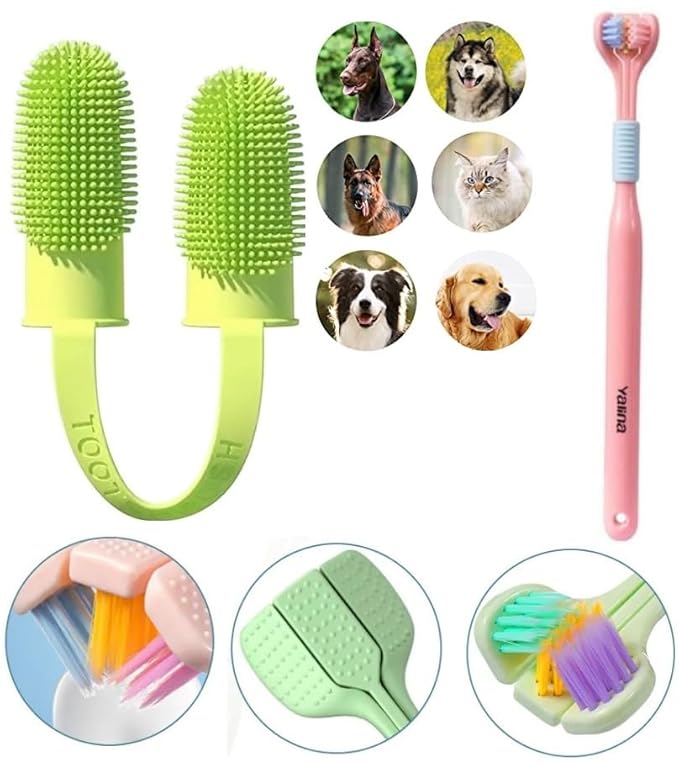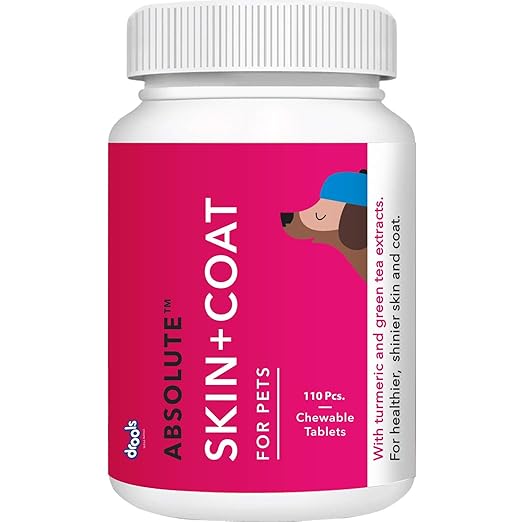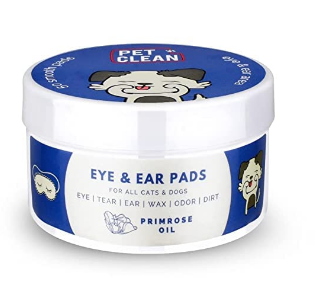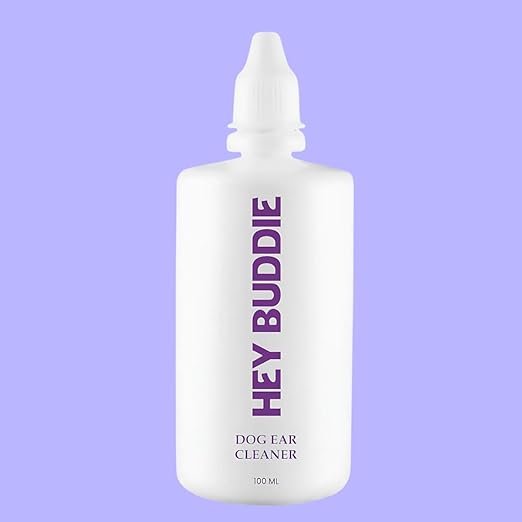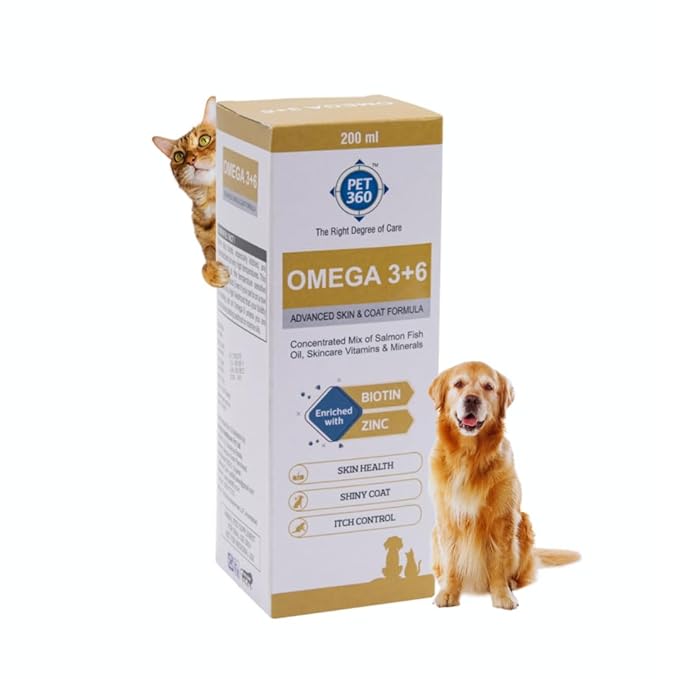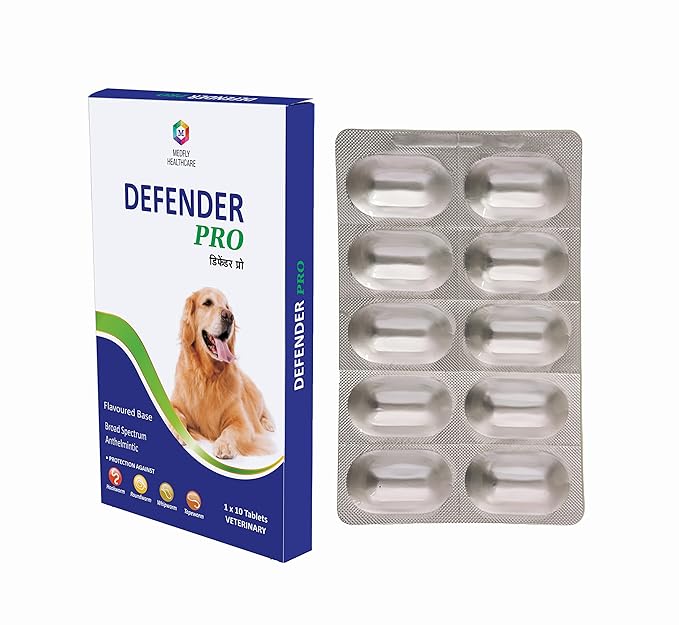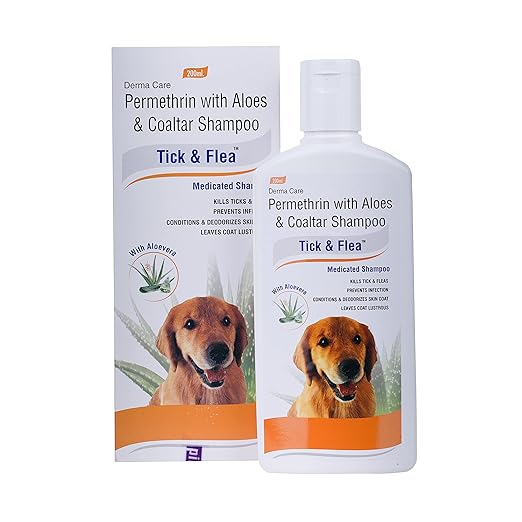Understanding Why Dogs Smell Bad
A dog’s scent is a complex combination of biological processes, environmental interactions, and individual health. Just like humans, a dog’s odor can vary from day to day and season to season. However, when smells become persistent, or your dog smells bad even after a bath, it’s time to investigate the underlying causes.
Why It’s Important to Address Dog Odor
Addressing dog odor isn’t just about personal comfort; it’s also essential for the health and well-being of your pet. Persistent dog odor can indicate skin infections, digestive problems, or dental disease—conditions that need prompt attention for your dog to stay healthy and happy.
Understanding the Science Behind Dog Odor
- Why Dogs Have a Strong Odor: Natural Causes Explained
Every dog has a unique scent, largely due to the natural oils and pheromones in their skin. These oils protect the skin and keep it moisturized, but they can produce strong smells. Additionally, dogs have scent glands in their paws and around their tails, which can create natural, musky odors. - How a Dog’s Anatomy Affects Their Smell
A dog’s skin structure and fur trap odors more easily than human skin, meaning sweat, bacteria, and natural oils often linger. Dogs also lack the sweat glands that help humans manage temperature, so they rely more on panting and skin oils, which can exacerbate odor. - Bacteria and Yeast: Major Players in Dog Body Odor
Bacteria and yeast naturally live on a dog’s skin. However, under certain conditions—such as warmth, moisture, or skin infections—these microorganisms multiply rapidly, leading to a noticeable increase in odor. Yeast, in particular, can produce a distinct smell, often compared to musty cheese or corn chips.
Common Causes of Dog Odor
- Natural Odor vs. Problematic Smell: Knowing the Difference
While it’s normal for dogs to have a natural, mild scent, strong odors—especially sudden or unpleasant smells—can indicate issues like infections, allergies, or dietary imbalances. Recognizing when a dog’s smell is beyond “normal” helps you address health concerns early. - Why Dogs Smell Bad When Wet: The Science of Wet Dog Smell
“Wet dog smell” occurs because water releases the bacteria and yeast in a dog’s fur, allowing odors to escape into the air. As the water evaporates, these microbes become airborne, producing that distinct wet dog aroma. - Why Dogs Smell After Going Outside: Environmental Factors
Dogs love exploring, and their fur can easily pick up scents from soil, plants, and other animals. Environmental smells can cling to their fur, especially if they roll in dirt or encounter other smelly substances outside.
Specific Reasons for Bad Dog Smell
- Why Does My Dog Smell Like Fish? Possible Health Issues
If your dog has a fishy odor, it’s often a sign of anal gland issues. These glands, located near the anus, can become impacted, releasing a pungent fishy smell. Regular veterinary care can help prevent and manage this issue. - Understanding Persistent Dog Odor and When to See a Vet
If your dog smells bad all the time despite grooming, underlying health problems may be to blame. Skin infections, allergies, or even systemic conditions can cause persistent odors that only a vet can diagnose and treat. - Why Dogs Smell Bad Suddenly: Causes of Rapid-Onset Odor
Sudden odor changes are often due to infections, injuries, or digestive problems. For example, skin infections can develop quickly and produce a sour smell. Monitoring your dog’s health closely helps you notice and address these changes.
Odor from Skin and Coat Issues
- Why Dog Skin Smells Bad: Common Skin Problems
Conditions like dermatitis, bacterial infections, and seborrhea can cause the skin to emit a strong odor. Allergies can exacerbate these issues, making your dog’s skin inflamed and more prone to infections. - Yeast Infections in Dogs and Their Odor Impact
Yeast infections, especially in moist areas like paws and ears, produce a strong, musty smell. Yeast thrives in warm, humid environments, which can cause irritation, itching, and discomfort in your dog. - Seborrhea and Its Role in Persistent Dog Odor
Seborrhea, a common skin condition, causes flaky, greasy skin and a strong odor. Seborrhea can be a primary condition or secondary to allergies, thyroid issues, or other underlying health problems.
Ear-Related Causes of Dog Odor
- Why Dog Ears Smell Bad: Recognizing Ear Infections
Ear infections are common in dogs, particularly those with floppy ears or allergies. Bacteria, yeast, and ear mites contribute to foul-smelling ears, which often require medical treatment to clear up. - Ear Mites, Bacteria, and Other Causes of Smelly Ears
Ear mites, which are tiny parasites, can infest a dog’s ears, causing itching, infection, and odor. Left untreated, ear mites can lead to bacterial infections that intensify the smell. - Solutions for Preventing Ear Odor in Dogs
Regular ear cleaning, especially for dogs prone to ear infections, can prevent odors from building up. Using vet-approved ear-cleaning solutions is the safest approach for your dog’s ears.
Dental and Breath Issues Contributing to Dog Odor
- Reasons for Dog’s Bad Breath: Common Causes and Solutions
Bad breath in dogs is often linked to dental disease. Plaque, tartar buildup, and gum infections produce a foul odor that can indicate oral health problems. - How Oral Hygiene Affects Overall Dog Odor
Poor oral hygiene allows bacteria to accumulate in a dog’s mouth, which can cause persistent bad breath. Regular dental cleanings and brushing can help reduce this odor. - Treating Bad Breath and Preventing Odor at the Source
Treating bad breath involves regular dental care and, in some cases, dietary adjustments. Dental chews, professional cleanings, and specially formulated foods can aid in keeping bad breath under control.
Odor from Anal Glands
- What Are Anal Glands and Why They Cause Odor
Dogs have anal glands that secrete a musky, fishy-smelling fluid used for marking territory. If these glands become impacted or infected, they release a strong odor that requires veterinary attention. - How to Recognize and Treat Anal Gland Issues
Signs of anal gland issues include scooting, licking, and a noticeable odor. Regular gland expressions by a vet or groomer can prevent these problems from escalating.
Environmental and Seasonal Odors
- Why Dogs Smell More in the Summer: Heat and Humidity
Hot weather increases the production of skin oils and sweat, which can worsen body odor. Dogs may also spend more time outdoors, increasing their exposure to environmental smells. - Odors from Outdoor Elements and Environmental Triggers
Dogs pick up a variety of smells from their surroundings. Rolling in grass, dirt, or other scents in nature can lead to temporary but potent odors. - Tips to Reduce Dog Smell After Outdoor Play
Brushing and using pet-safe wipes after outdoor activities can reduce lingering odors, especially in active dogs that love rolling in nature.
Grooming and Bathing Solutions for Dog Odor
- How Often Should You Bathe Your Dog? Finding the Balance
Bathing too often strips a dog’s coat of essential oils, while infrequent baths allow odor to build up. Generally, a bath every four to six weeks is sufficient. - Choosing the Best Products for Dog Odor Control
Odor-control shampoos and sprays are effective but should be chosen carefully. Look for products that are gentle on the skin and free of harsh chemicals. - Why Dogs Smell Bad After Bath: Bathing Mistakes to Avoid
Not rinsing thoroughly or using poor-quality products can leave residue on the skin, which may cause odor. Drying your dog completely also helps reduce post-bath smells.
Diet and Nutrition’s Role in Dog Odor
- How a Dog’s Diet Can Affect Their Smell
A high-quality, balanced diet promotes healthy skin and reduces body odor. Diets rich in omega fatty acids, in particular, help keep skin healthy and less prone to odors. - Diet Changes to Improve Body Odor in Dogs
Some dogs benefit from hypoallergenic diets, which reduce the risk of skin and coat issues that contribute to odor. Consulting your vet can help determine the best dietary changes.
Reducing Dog Odor Naturally
- Natural Remedies for Dog Odor: Simple Home Solutions
Apple cider vinegar, baking soda, and diluted lemon juice are gentle, natural ways to neutralize odor on your dog’s coat between baths. - How to Make Dogs Smell Better Naturally
Regular brushing, a balanced diet, and occasional natural rinses can help control odors without relying on chemicals.
Effective Products for Managing Dog Odor
- Best Products for Dog Odor: Shampoos, Sprays, and More
Odor-neutralizing shampoos, deodorizing sprays, and dental treats are excellent options for managing odor between grooming sessions. - Dog Odor in House Solutions: Tips for Freshening Up the Home
Using air purifiers, washable bedding, and pet-safe air fresheners can reduce dog odor in the house, keeping the environment more pleasant.
Addressing Dog Odor After Exercise
- Why Dogs Smell After a Walk: Causes and Quick Fixes
Exercise releases oils and sweat, and dogs pick up environmental odors. A quick brush or wipe-down helps minimize these post-walk smells. - Tips for Reducing Odor After Physical Activity
Regular grooming and ensuring proper hydration reduce odor after activity, helping keep your dog smelling fresher.
Long-Term Odor Management Strategies
- How to Stop Dog Odor: Consistent Hygiene Practices
Maintaining consistent grooming, diet, and regular vet checkups are key to managing dog odor effectively. - Routine Vet Checkups to Monitor for Odor Causes
Frequent vet checkups help catch underlying conditions that cause persistent odor, allowing for early intervention.
When to See a Veterinarian for Persistent Odor
- Recognizing When Your Dog’s Odor is a Medical Concern
If your dog’s smell is overpowering or suddenly changes, it’s time to consult your veterinarian. Persistent odor can signal infection, allergies, or more severe health issues. - Common Veterinary Treatments for Dog Odor
Treatments vary from antibiotics for infections to dietary changes. Vets can recommend safe and effective odor management strategies.
Conclusion:
Dog odor can be challenging but manageable with the right care and awareness. By understanding the causes and applying appropriate solutions, you can keep your dog healthier and your environment fresher.
Related articles:

